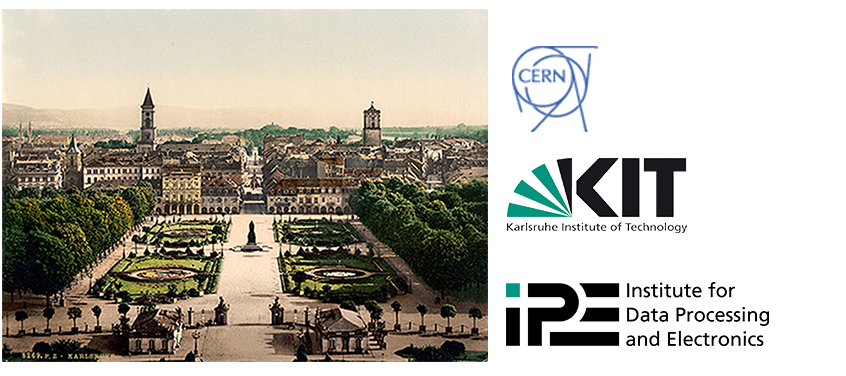Monday 26.09.2016 9:00 - 12:30
MTCA.4 Tutorial
9:00 MTCA.4 BASICS - Introduction in xTCA Rüdiger Cölln (Pentair)
9:45 MicroTCA.4 Tutorial and Life Demo Heiko Körte/VollrathDirksen (N.A.T.)
10:30 Coffeebreak
11:00 PCI Express and PCI Express Hot Swap under Linux Ludwig Petrosyan (DESY)
11:45 High Performance Measurement Application in MicroTCA.4 Frank Ludwig (DESY)
Title: MTCA.4 BASICS - Introduction in xTCA
Speaker: Rüdiger Cölln (Pentair)
MicroTCA is a modular, open standard for building high performance switched fabric computer systems in a small form factor. This technology was originally developed as a cost optimized alternative to AdvancedTCA and intended for smaller telecom systems at the edge ofthe network. But MTCA has moved into many non-telecom applications, including advanced physics, telemetry, mobile and data acquisition applications. This tutorial explains the basic functions and performance of MicroTCA and helps to understand the great benefits of this technology.
Title: MicroTCA.4 Tutorial and Life Demo
Speaker: Heiko Körte/Vollrath Dirksen (N.A.T.)
In 45 minutes hardware and software tools for MicroTCA.4 are presented, which reduce the time to bring up a MicroTCA.4 system with minimal risk. The presentation integrates a life demo which shows typical situations, how to quickly identify issues and how to solve them. The attendees learn how the key differences of the MicroTCA standard compared to other open standards make the installation and maintenance of systems in the lab and remotely in the field easier and faster.
Title: PCI Express and PCI Express Hot Swap under Linux in MicroTCA systems
Speaker: Ludwig Petrosyan (DESY)
One of the main characteristics of any computer architecture is reliability and uninterrupted operation. This important if a system allows a possibility to add and remove devices in run. The Hot-Plug Service in a computer system is generally provided by the central bus. The MTCA systems use the PCIe as a central bus of data transmission. One of especially important features of this bus is a possibility of hot replacement of the devices without resetting an operating system. The Hot-Swap service is irreplaceable not only in the process of development of final devices but also in the use, thus ensuring continuous functioning of the system as a whole. Such feature plays an important role especially in control systems. The Hot-Swap PCIe service is being used relatively long. However, the MTCA system makes its own amendments into general architecture of the PCIe Hot-Swap and in the methods and ways of use. The current tutorial describes the main PCI Express and PCIe Express Hot Plug Hardware and Linux Software components on MTCA systems.
Title: High Performance Measurement Application in MicroTCA.4
Speaker: Frank Ludwig (DESY)
Data acquisition systems using open platform standards compared to proprietary systems offers a high modularity and the usage of a variety of different boards from various vendors. Especially the new standard MicroTCA.4 offers the benefit of combining high-speed digital data processing AMC boards together with high precision analog signal conditioning RTM boards. To achieve ultimate analog performance it requires carefully design of AMC and RTM boards, and good understanding of the electromagnetic compatibility (EMC) to maintain the required signal-integrity in a modular system. In this tutorial we show high precision applications far below -80dB using different grounding configurations. Particularly AMC and RTM ac-coupled differential signal transmission via Zone 3 for the detection and regulation of high frequency cavity fields on the fs-level and broadband dc-coupled signal conditioning on AMCs or RTMs.
Friday 30.9.2016 14:00 - 17:00
Title: Reliability and failure mechanisms of Integrated Circuits and devices
Speaker: Guido Groeseneken (imec)
When scaling down CMOS towards smaller and smaller dimensions, the electrical fields inside the devices are increasing which leads to potential failures of the transistors. This can limit the lifetime of the circuits that are made in these technologies. As a result reliability is becoming more and more a fundamental limiting factor for the further downscaling of the technology. This lecture explains the main failure mechanisms that are acting at transistor level with focus on Time-dependent dielectric breakdown, Bias-temperature Instability and to a lesser extent also Hot carrier degradation. For each mechanism the basics as well as the test structures and characterization techniques needed to quantify the degradation, the voltage and temperature acceleration models and ways to cope with the problem and to improve the lifetime will be discussed.
